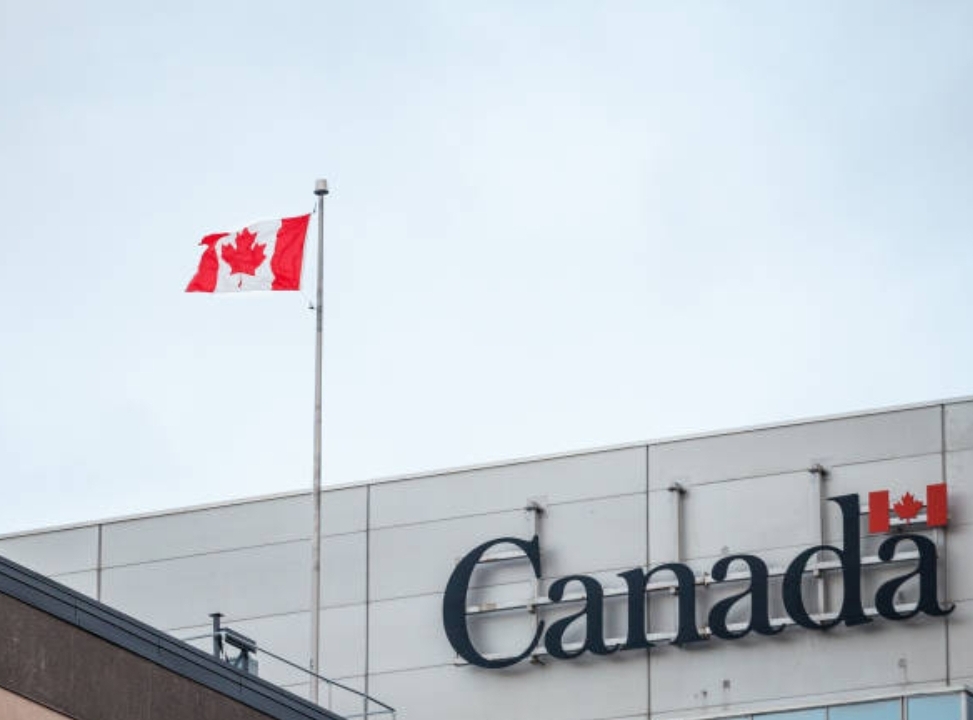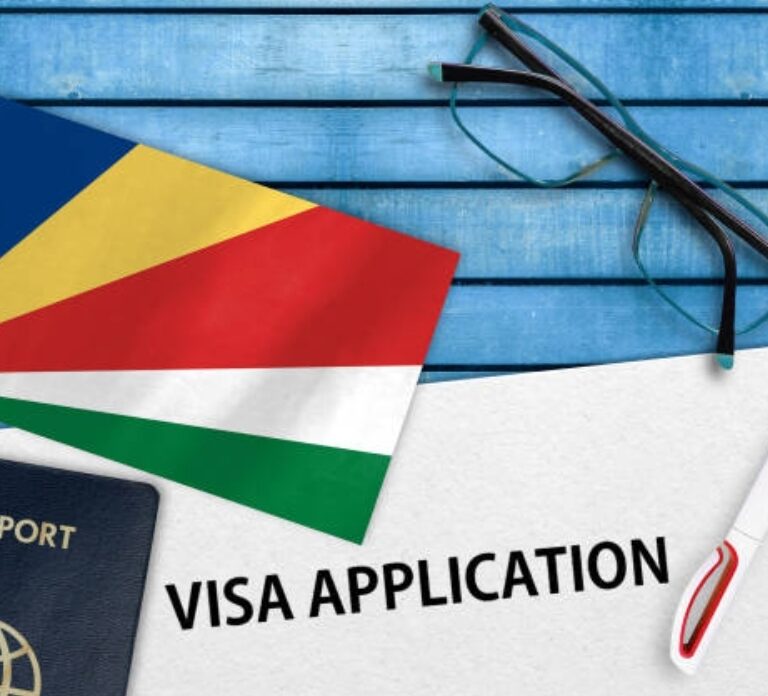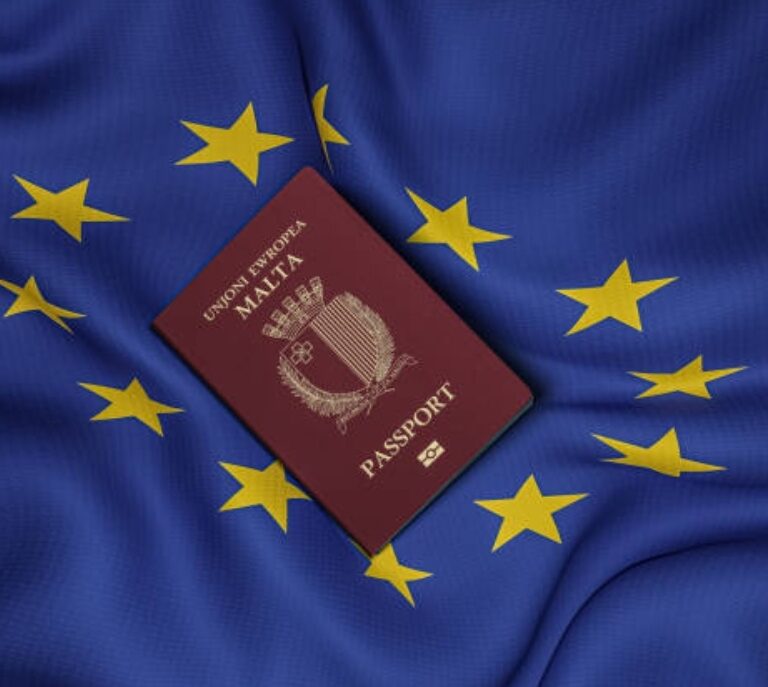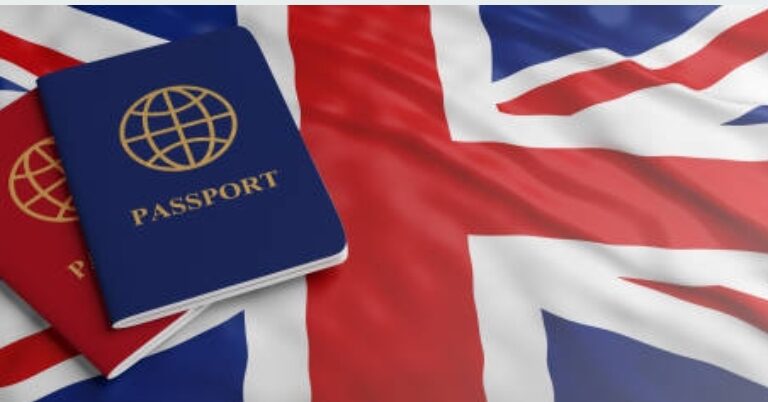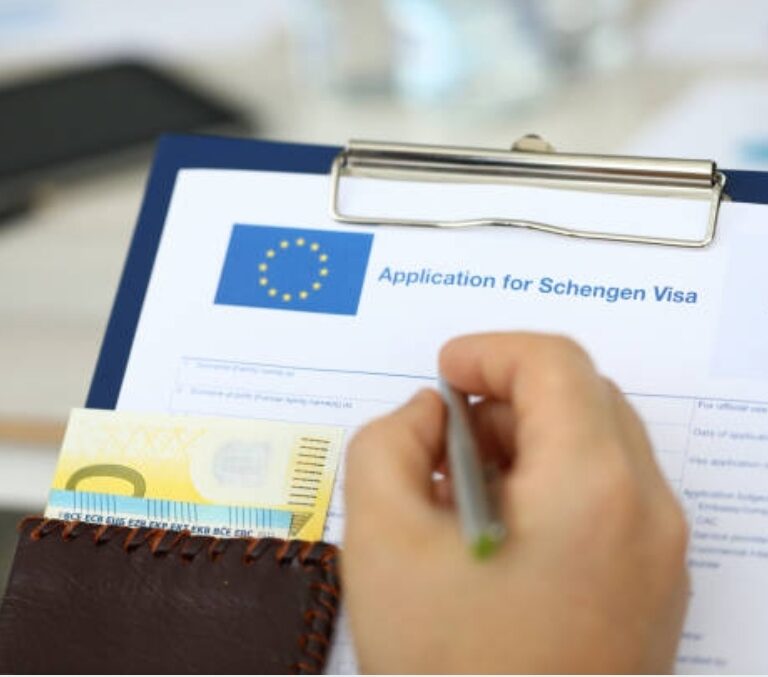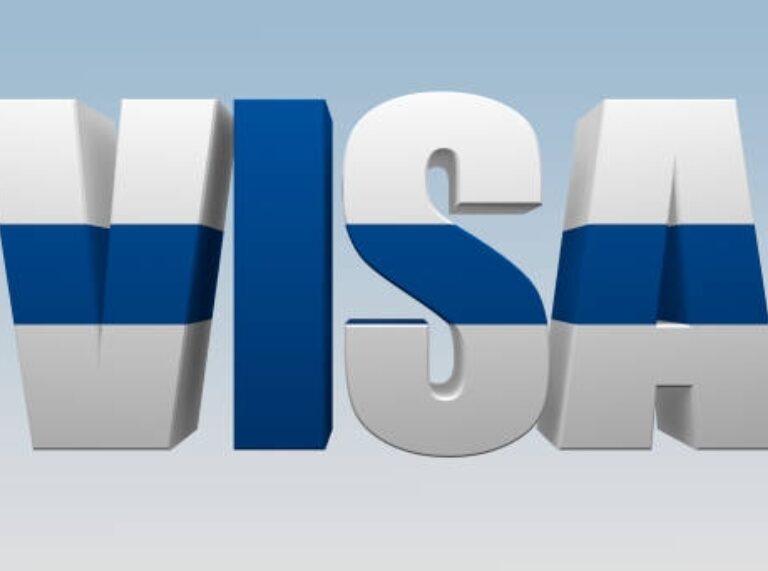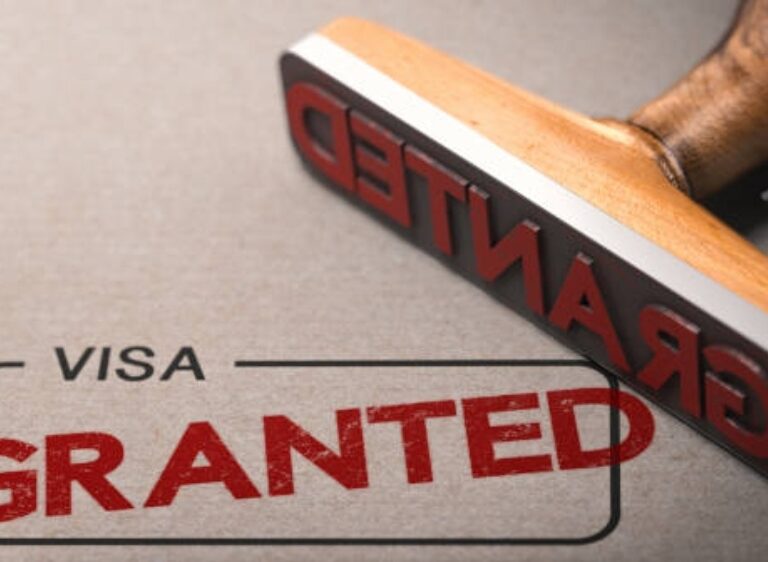U.S. Visa Sponsorship Opportunities. For ambitious professionals and skilled workers aspiring to build a future in the United States, the journey to realizing your American Dream may be more accessible than you imagine. In the constantly evolving landscape of international talent acquisition, a plethora of U.S. visa sponsorship opportunities is emerging across diverse industries in the years 2024 and 2025.
Whether your passion lies in pioneering tech advancements, innovative healthcare solutions, or contributing to a thriving educational ecosystem, there is a promising space for you on American soil.
In this blog post, we will serve as your guide, exploring the exciting realm of U.S. visa sponsorship opportunities anticipated for the upcoming year.
What is Visa Sponsorship?
Visa sponsorship refers to the process when an individual or organization in a country supports and advocates for a foreign national’s application for a visa or green card to enter and stay in that country.
Here’s a breakdown of the key aspects of visa sponsorship:
Who can be a sponsor?:
- Individuals: This can include family members like spouses, parents, or siblings, or even unrelated individuals like employers or friends.
- Organizations: Companies, educational institutions, government agencies, and NGOs can also act as sponsors.
What types of visas can be sponsored?:
- Employment-based visas: Employers sponsor foreign workers for specific job positions.
- Family-based visas: Family members sponsor relatives to immigrate and live with them.
- Investment visas: Individuals or organizations sponsor applicants who invest in businesses or projects in the country.
- Student visas: Educational institutions sponsor international students for their studies.
Responsibilities of a sponsor:
- Providing financial support for the sponsored individual, if required.
- Ensuring the sponsored individual complies with immigration laws and regulations.
- Submitting necessary documentation and evidence to support the visa application.
- Attending interviews or hearings on behalf of the sponsored individual (in some cases).
Highest Paying Jobs in Canada
| Job Title | Average Salary (CAD) |
|---|---|
| Architect Jobs | $130,000 – $140,000 per year |
| Financial Analyst | $95,000 – $135,000 per year |
| Pharmacist | $97,000 – $145,000 per year |
| Web Developer | $75,000 – $130,000 per year |
Benefits of visa sponsorship:
- Allows qualified individuals to work, study, or live in a country legally.
- Provides financial support and guidance to new immigrants.
- Helps businesses fill job vacancies with skilled foreign workers.
- Strengthens cultural exchange and international cooperation.
Things to consider:
- Visa sponsorship can be a complex process with specific requirements and procedures.
- Sponsors have legal and financial obligations towards the sponsored individual.
- Not all visa types require sponsorship.
- Consulting with an immigration attorney can be helpful for navigating the process.
Who is Eligible For Visa Sponsorship?
The eligibility for visa sponsorship depends heavily on the type of visa and the sponsoring country. Therefore, to give you the most accurate information, I need some additional details:
What type of visa are you interested in? (Employment, family, student, investment, etc.)
Which country are you aiming to immigrate to?
Once I have this information, I can provide you with the specific eligibility criteria for sponsorship in that context. Here’s a general overview of some common factors affecting eligibility:
For the sponsored individual:
- Meeting the visa requirements: This can include education, work experience, skills, age, health, and financial resources.
- Having a clean criminal record.
- Maintaining valid travel documents.
- Demonstrating strong ties to your home country (except for certain circumstances).
For the sponsor:
- Meeting the legal requirements to be a sponsor (citizenship, residency status, etc.).
- Having sufficient financial resources to support the sponsored individual.
- Providing documented proof of the relationship or sponsorship agreement.
- Maintaining a good standing with immigration authorities.
Remember, these are just general guidelines, and specific requirements will vary depending on the visa type and country. Consulting with an immigration attorney or the relevant embassy/consulate is highly recommended to ensure you understand the exact eligibility criteria and procedures for your specific situation.
Types of U.S. Visas Sponsored by Employers
There are several types of U.S. visas sponsored by employers, each with its own eligibility requirements and purposes. Here’s an overview of some of the most common:
1. H-1B Visa: This visa is for specialty occupations, which are defined as occupations that require at least a bachelor’s degree in a specific field. Some common examples of H-1B jobs include engineers, accountants, lawyers, doctors, and computer programmers.
Requirements:
- The employer must file a petition with the U.S. Citizenship and Immigration Services (USCIS) on behalf of the employee.
- The employee must have a bachelor’s degree or higher in a related field, or have at least 12 years of progressive experience in the specialty occupation.
- The employer must offer the employee a wage that is at least the prevailing wage for the position in the area of employment.
2. L-1 Visa: This visa is for intracompany transfers, which means it allows employees of a foreign company to work for its U.S. branch or affiliate.
Requirements:
- The employee must have been employed by the foreign company for at least one continuous year in the three years preceding the application.
- The employee must be coming to the United States to work in a managerial, executive, or specialized knowledge position.
- The foreign company must have a qualifying office in its home country and a subsidiary or affiliate in the United States.
3. O-1 Visa: This visa is for individuals with extraordinary ability in the sciences, arts, education, business, athletics, or film and television.
Requirements:
- The employee must have sustained national or international acclaim for their achievements.
- The employee must be coming to the United States to work in their field of expertise.
- The employee must consult with at least two experts in their field, who will provide written evidence of the employee’s extraordinary ability.
4. TN Visa: This visa is for citizens of Canada or Mexico who are professionals in certain fields, such as accountants, engineers, lawyers, and teachers.
Requirements:
- The employee must be a citizen of Canada or Mexico.
- The employee must have a bachelor’s degree or higher in the field of work.
- The employee must be coming to the United States to work in a professional capacity in one of the approved fields.
5. R-1 Visa: This visa is for religious workers who are coming to the United States to work in a religious vocation or occupation.
Requirements:
- The employee must be a bona fide religious worker who has been ordained or in a religious vocation for at least two years.
- The employee must be coming to the United States to work for a qualifying religious organization.
- The employee must be employed in a religious vocation or occupation.
These are just a few of the many types of U.S. visas sponsored by employers. The best way to determine which visa is right for you is to consult with an immigration attorney. They can help you understand the specific requirements and procedures for each type of visa and advise you on the best course of action for your individual situation.
Please remember that this information is for general educational purposes only and should not be construed as legal advice.
Highly Skilled Jobs in Canada
| Job Title | Average Salary (CAD) |
|---|---|
| Civil Engineer | $135,000 – $145,000 per year |
| Accountant Jobs | $65,000 – $95,000 per year |
| Data Analysts | $97,000 – $135,000 per year |
| Barbing Jobs | $35,000 – $50,000 per year |
What Documents Do You Need For U.S Sponsorship?
The documents required for U.S. sponsorship vary significantly depending on:
1. The type of visa: Each visa category has its own set of specific documentation requirements. For example, an H-1B visa application needs different documents compared to an O-1 visa application.
2. The sponsor and applicant: Citizenship status, relationship to the applicant, and financial standing can affect the required documents.
3. Individual circumstances: Additional documents might be needed based on specific situations, like education verification or medical tests.
Here’s a general overview of some common documents required for various U.S. visas sponsored by employers:
For the Employer:
- Form I-140, Immigrant Petition for Alien Worker: This form establishes the employer’s need for the foreign worker’s services.
- Labor Certification and Wage Rate Determination: This proves the employer has sought to hire American workers first and is offering the prevailing wage for the position.
- Company documentation: Financial statements, business licenses, and organizational charts might be needed.
For the Employee:
- Passport and travel documents: Valid passport and any relevant visas or travel authorizations.
- Educational credentials: Diplomas, transcripts, and proof of relevant degrees or education.
- Work experience documentation: Employment letters, pay stubs, and job descriptions detailing experience in the field.
- Professional licenses and certifications: If applicable to the chosen profession.
- Medical examination: Certain visas might require specific medical tests.
- Proof of financial support: Depending on the visa type and individual circumstances.
Additional documentation may be required depending on the specific case, such as:
- Evidence of the relationship between the sponsor and applicant (for family-based visas)
- Evidence of extraordinary ability or achievements (for O-1 visas)
- Religious documentation and affiliation (for R-1 visas)
Remember: This is just a general guide, and the specific documents needed will vary for your individual situation.
It’s crucial to consult with an immigration attorney to determine the exact requirements for your desired visa type and sponsorship details. They can help you ensure you have all the necessary documentation and prepare a strong application.
How to Find U.S. Visa Sponsorship Opportunities
Finding U.S. visa sponsorship opportunities can be challenging, but with the right strategies, you can increase your chances of success. Here are some ways to approach your search:
1. Target your search based on your skills and experience:
- Identify companies in your field: Start by researching companies in the U.S. that operate in your industry or require skills and expertise like yours.
- Check their websites and career pages: Many companies advertise sponsorship opportunities on their career pages or job postings. Look for keywords like “visa sponsorship,” “H-1B,” or “international applicants.”
- Utilize job boards with sponsorship filters: Websites like Vizajobs, Indeed, and USponsorMe cater specifically to job seekers looking for visa sponsorship. Utilize their filters to find relevant positions and prioritize companies sponsoring visas.
2. Networking is key:
- Connect with professionals in your field: Attend industry conferences, online forums, and professional networking events to build connections with professionals in the U.S. They might have insights on companies offering sponsorship or direct you to relevant hiring managers.
- Utilize online platforms: LinkedIn is a powerful tool for professional networking. Connect with recruiters, hiring managers, and employees at companies you’re interested in. Build relationships and highlight your skills and qualifications.
3. Consider niche job boards and resources:
- Focus on your specific visa category: Resources like H1B Visa Lottery and Redbus2US cater specifically to H-1B visa seekers and offer valuable information on companies likely to sponsor.
- Explore industry-specific publications and associations: Check publications and websites relevant to your field for job postings and career resources. Industry associations might also offer job boards or career resources focused on sponsored positions.
4. Be proactive and reach out directly:
- Research hiring managers: Identify the hiring managers for relevant positions at your target companies. Reach out directly with personalized emails expressing your interest and highlighting your skills and qualifications.
- Cold-calling can be effective: In some cases, reaching out directly to companies that haven’t advertised sponsored positions can be fruitful. Explain your value proposition and why their team might benefit from your expertise.
5. Don’t forget about resources beyond the U.S.:
- Check your home country’s resources: Government agencies or international offices in your home country might offer resources and guidance on finding U.S. visa sponsorship opportunities.
- Utilize international student organizations: If you’re a current or recent student, contact your university’s career center or international student organization. They might have partnerships with U.S. companies or offer workshops on finding sponsored positions.
Remember:
- Research thoroughly: Before applying for any position, research the company’s reputation, work culture, and visa sponsorship history.
- Tailor your resume and cover letter: Customize your resume and cover letter to highlight your skills and experience relevant to the specific position and company.
- Prepare for interviews: Practice your interview skills and research common interview questions for your field.
- Seek professional help: Consider consulting with an immigration attorney or career counselor who can provide personalized guidance and support throughout your job search.
Finding U.S. visa sponsorship requires persistence and proactive effort. By utilizing the strategies mentioned above and showcasing your skills and qualifications effectively, you can increase your chances of landing your dream job and securing visa sponsorship.
How to Find U.S. Visa Sponsorship Opportunities
Salary Scale for Some of the Countries for the Immigrants
| Country | Average Salary (USD/year) | Key Industries |
|---|---|---|
| Canada | 45,000 – 70,000 | Technology, Healthcare, Engineering |
| Germany | 50,000 – 75,000 | Engineering, IT, Manufacturing |
| Switzerland | 80,000 – 120,000 | Finance, Pharmaceuticals, Engineering |
| Australia | 60,000 – 85,000 | Technology, Mining |
Finding U.S. visa sponsorship opportunities can be challenging, but with the right strategies, you can increase your chances of success. Here are some ways to approach your search:
1. Target your search based on your skills and experience:
- Identify companies in your field: Start by researching companies in the U.S. that operate in your industry or require skills and expertise like yours.
- Check their websites and career pages: Many companies advertise sponsorship opportunities on their career pages or job postings. Look for keywords like “visa sponsorship,” “H-1B,” or “international applicants.”
- Utilize job boards with sponsorship filters: Websites like Vizajobs, Indeed, and USponsorMe cater specifically to job seekers looking for visa sponsorship. Utilize their filters to find relevant positions and prioritize companies sponsoring visas.
2. Networking is key:
- Connect with professionals in your field: Attend industry conferences, online forums, and professional networking events to build connections with professionals in the U.S. They might have insights on companies offering sponsorship or direct you to relevant hiring managers.
- Utilize online platforms: LinkedIn is a powerful tool for professional networking. Connect with recruiters, hiring managers, and employees at companies you’re interested in. Build relationships and highlight your skills and qualifications.
3. Consider niche job boards and resources:
- Focus on your specific visa category: Resources like H1B Visa Lottery and Redbus2US cater specifically to H-1B visa seekers and offer valuable information on companies likely to sponsor.
- Explore industry-specific publications and associations: Check publications and websites relevant to your field for job postings and career resources. Industry associations might also offer job boards or career resources focused on sponsored positions.
4. Be proactive and reach out directly:
- Research hiring managers: Identify the hiring managers for relevant positions at your target companies. Reach out directly with personalized emails expressing your interest and highlighting your skills and qualifications.
- Cold-calling can be effective: In some cases, reaching out directly to companies that haven’t advertised sponsored positions can be fruitful. Explain your value proposition and why their team might benefit from your expertise.
5. Don’t forget about resources beyond the U.S.:
- Check your home country’s resources: Government agencies or international offices in your home country might offer resources and guidance on finding U.S. visa sponsorship opportunities.
- Utilize international student organizations: If you’re a current or recent student, contact your university’s career center or international student organization. They might have partnerships with U.S. companies or offer workshops on finding sponsored positions.
Remember:
- Research thoroughly: Before applying for any position, research the company’s reputation, work culture, and visa sponsorship history.
- Tailor your resume and cover letter: Customize your resume and cover letter to highlight your skills and experience relevant to the specific position and company.
- Prepare for interviews: Practice your interview skills and research common interview questions for your field.
- Seek professional help: Consider consulting with an immigration attorney or career counselor who can provide personalized guidance and support throughout your job search.
Finding U.S. visa sponsorship requires persistence and proactive effort. By utilizing the strategies mentioned above and showcasing your skills and qualifications effectively, you can increase your chances of landing your dream job and securing visa sponsorship.
Top Companies Offering Visa Sponsorship
Determining the “top” companies offering visa sponsorship can be subjective and situational, as it depends heavily on your specific skills, experience, and career goals. However, I can provide some insights into companies known for their active sponsorship programs across diverse industries:
Tech Giants:
- Microsoft: Consistently tops the charts for H-1B sponsorships, seeking talent in software development, data science, and engineering.
- Google: Sponsors various visas for diverse roles in software engineering, product management, and research.
- Amazon: A major sponsor for tech talent, offering opportunities in software development, cloud computing, and data analytics.
- Apple: Sponsors for specialized roles in hardware engineering, software development, and artificial intelligence.
- Meta (Facebook): Actively sponsors visas for engineers, data scientists, and product managers working on cutting-edge projects.
Consulting and Professional Services:
- Accenture: A global leader in consulting, sponsoring visas for various roles in strategy, technology, and operations.
- Deloitte: Sponsors diverse talent across consulting, audit, and tax services, making it a good option for professionals with financial or business backgrounds.
- McKinsey & Company: Renowned management consulting firm sponsoring visas for experienced professionals in strategy, analytics, and organizational development.
- EY (Ernst & Young): Global professional services firm sponsoring visas for roles in accounting, auditing, and consulting across various industries.
- KPMG: Another major professional services firm actively sponsoring visas for accountants, auditors, and tax advisors.
Finance and Investment Banking:
- JPMorgan Chase: Sponsors visas for skilled professionals in investment banking, asset management, and financial technology.
- Goldman Sachs: Top sponsor for highly qualified individuals in investment banking, trading, and risk management.
- Morgan Stanley: Offers visa sponsorship for talented professionals in banking, wealth management, and research.
- Citigroup: Sponsors visas for various roles in investment banking, commercial banking, and financial technology.
- Bank of America: Seeks sponsored talent in banking, investment management, and technology across various departments.
Other sectors:
- Boeing: Aerospace giant sponsoring visas for engineers, manufacturing specialists, and data analysts.
- ExxonMobil: Energy company sponsoring visas for geologists, engineers, and scientists involved in oil and gas exploration.
- Johnson & Johnson: Healthcare conglomerate sponsoring visas for researchers, scientists, and engineers in pharmaceuticals and medical devices.
- Hilton Worldwide: Hospitality chain providing visa sponsorship for management positions in hotels and resorts.
- Starbucks: Coffee giant offering visa sponsorship for store managers and corporate roles in different departments.
Remember:
- This list is not exhaustive, and many other companies offer visa sponsorship across various industries.
- Research specific companies’ sponsorship programs, eligibility criteria, and career opportunities before applying.
- Network with professionals in your field to gain insights into companies known for sponsoring visas.
- Tailor your resume and cover letter to highlight your skills and qualifications relevant to the target company and position.
Tips for Increasing Your Chances of Getting Sponsored
Securing visa sponsorship can be challenging, but by strategically honing your approach and showcasing your value, you can significantly increase your chances of success. Here are some key tips:
Before the application:
- Target your search: Identify companies in your field actively sponsoring visas and prioritize positions aligned with your skills and experience. Utilize job boards with sponsorship filters and explore industry-specific resources.
- Build a strong online presence: Develop a robust LinkedIn profile highlighting your accomplishments and expertise. Participate in relevant online communities and forums to demonstrate your knowledge and engagement.
- Sharpen your skills and qualifications: Continuously upgrade your skills through online courses, certifications, or industry-specific training. Possessing specialized knowledge or niche expertise can make you stand out.
- Network actively: Attend conferences, online forums, and professional events to connect with professionals in your field. Build relationships and subtly express your interest in visa sponsorship opportunities.
During the application process:
- Tailor your resume and cover letter: Customize these documents for each position, highlighting relevant skills and achievements specific to the company and role. Quantify your impact and use strong action verbs.
- Prepare for interviews: Research the company culture, common interview questions, and potential challenges related to visa sponsorship. Practice your answers and showcase your confidence and communication skills.
- Express genuine interest: Go beyond technical skills and demonstrate your passion for the company’s mission and values. Explain how your expertise can contribute to their success and growth.
- Negotiate effectively: Once offered a position, understand the sponsorship process and discuss compensation benefits comprehensively. Be prepared to negotiate terms that work for both you and the company.
Additional tips:
- Showcase your cultural value: Highlight how your diverse background and experiences can enrich the company’s work environment and bring fresh perspectives.
- Seek professional guidance: Consider consulting with an immigration attorney or career counselor for personalized advice and assistance with the sponsorship process.
- Stay persistent and proactive: Networking and job searching can be time-consuming. Don’t get discouraged, focus on continuous improvement, and keep actively pursuing your goals.
Remember, securing visa sponsorship requires a multi-pronged approach. By combining these tips with your unique skills and qualifications, you can significantly increase your chances of landing your dream job and securing sponsorship for your U.S. visa journey.
Good luck!
Can a Friend Sponsor Me to USA?
Directly sponsor a visa or green card: No, unfortunately, a friend cannot directly sponsor your visa or green card application to the USA. US immigration law only allows sponsorship for certain categories, which include family members, employers, and fiancés. Friends don’t fall under any of these categories.
Act as a financial sponsor: However, a friend can act as a financial sponsor for your immigration application if someone else is sponsoring your visa or green card. This means your friend would file an Affidavit of Support (Form I-864) with the US Citizenship and Immigration Services (USCIS), pledging to financially support you if you become a public charge (reliant on government assistance) on entering the US.
How Much Bank Balance is Required for US visa?
Unfortunately, there is no specific minimum bank balance required for a US visa. However, sufficient financial resources to support your stay in the US is a crucial factor in the visa application process, particularly for non-immigrant visas like tourist visas.
Here’s what you need to understand:
Factors considered:
- Visa type: Each visa category has different expectations regarding financial resources. Tourist visas might require more scrutiny compared to work or academic visas.
- Length of stay: The longer your intended stay, the more proof of financial support you might need.
- Planned expenses: Consider your estimated travel costs, accommodation, food, and other expenses during your stay in the US.
- Income proof: Provide evidence of your regular income or financial standing (employment letters, bank statements, etc.).
- Sponsorship: If sponsored, document your sponsor’s financial resources and commitment to supporting your stay.
General guidelines (not exact requirements):
- Tourist visa: Some suggest aiming for a balance of $6,000-$10,000, but the actual amount needed will depend on your circumstances.
- Student visa: While no minimum exists, demonstrating enough funds to cover tuition, living expenses, and health insurance is crucial.
- Work visa: Proof of your sponsor’s financial stability and your expected salary should be sufficient.
Tips:
- Maintain a consistent income history reflected in your bank statements.
- Avoid sudden large deposits close to the application date.
- Tailor your documentation to demonstrate your planned expenses and available resources.
- Consult with an immigration attorney for specific guidance based on your visa type and situation.
Remember:
- Financial resources are one of many factors influencing your visa application outcome.
- A strong application package, travel purpose, and adherence to immigration regulations are equally important.
- Focus on demonstrating your ability to financially support your intended stay in the US.
I hope this information clarifies the role of bank balances in US visa applications. If you have specific questions about your individual situation, consulting with an immigration expert is recommended.

